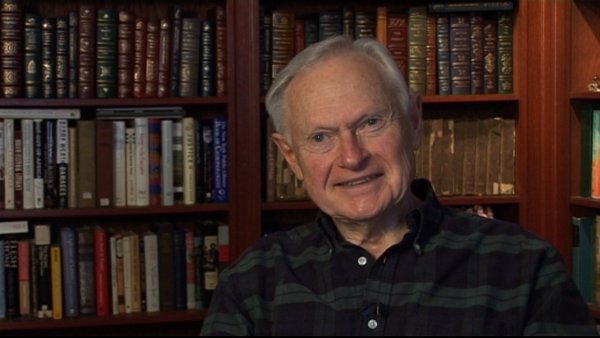NEXT STORY

Why surgery wasn't my thing
RELATED STORIES

NEXT STORY

Why surgery wasn't my thing
RELATED STORIES


|
Views | Duration | |
|---|---|---|---|
| 11. I get accepted to Johns Hopkins School | 430 | 02:50 | |
| 12. 'This is where I belong': Yale School of Medicine | 423 | 04:38 | |
| 13. 'Shhh, those are the Protestants!' | 1 | 439 | 02:59 |
| 14. Why surgery wasn't my thing | 430 | 01:55 | |
| 15. How Robert A Chase changed my life | 1 | 481 | 04:58 |
| 16. I meet my first wife | 817 | 03:17 | |
| 17. Depression | 747 | 05:09 | |
| 18. Meeting Sarah, my second wife | 806 | 03:55 | |
| 19. 'Next time get a better room!' | 590 | 03:26 | |
| 20. Breaking up with Sarah | 1121 | 03:56 |


Many years later, I was invited several times to give endowed lectures at Hopkins, and I loved Hopkins. You know, I revere that place, but I'm certainly glad I went to Yale, because Yale did a lot of wonderful things for me. It loosened me up in many, many ways, it made me much more social. It taught me what the world was like.
Since we've got a lot of film, I can tell you this anecdote. Yale had it arranged so that the summer before your freshman year, you were put in contact with a fellow who was a year ahead of you, and he'd meet you somewhere and you had dinner with him, and my overseer, as it were, my big brother kind of guy, was a fellow named Jacques Quenn. And Jacques called me, and he called another fellow who was going to be in my class, named Leo Cardello, who had gone to Fordham, actually, an Italian kid who had gone to Fordham, and he took us to dinner at the Hampshire House on Central Park South. Ironically, the Hampshire House was a place where I'd worked as an elevator operator for a couple of summers, and here I was, you know, I was… a guest.
And having a lovely dinner. So, when we had to choose cadaver partners, Leo and I and another fellow were cadaver partners. And that first day, we were issued, or we had to buy, I don't remember, dissecting coats, which were short-sleeved coats that you put on like a jacket, and there was a string in the back that you tied up, like a smock, like a baker's smock. And we were warned, when we put them on, we should take our undershirts off. There were only four women in the class, and I don't know where they put theirs on, but we went down to a big locker room in the basement, and we were all stripped to the waist and putting our smocks on. And I look around, and all these guys. There were very few men with hair on their chests. Well, I'm used to… all Jews have hair on their chests, you know. I grew up with Jews, Italians, the Irish. The Irish tended not to have so much, but all the Italian guys had, you know, bushes on their chests, like the Jews did. I look around, and very few guys with hair on their chests and I turned to Leo… this has also become a family legend. And I said, very quietly, very sotto voce, I said, 'Leo, look at all these guys without hair on their chests'. And very quietly, so he shouldn't be heard, he said, 'Shhh, those are the Protestants'.
Sherwin Nuland (1930-2014) was an American surgeon and author who taught bioethics, the history of medicine, and medicine at the Yale University School of Medicine. He wrote the book How We Die which made The New York Times bestseller list and won the National Book Award. He also wrote about his own painful coming of age as a son of immigrants in Lost in America: A Journey with My Father. He used to write for The New Yorker, The New York Times, Time, and the New York Review of Books.
Title: 'Shhh, those are the Protestants!'
Listeners: Christopher Sykes
Christopher Sykes is a London-based television producer and director who has made a number of documentary films for BBC TV, Channel 4 and PBS.
Tags: Johns Hopkins School, Yale School of Medicine, Fordham University, The Hampshire House, Central Park South, Jacques Quinn, Leo Cardillo
Duration: 2 minutes, 59 seconds
Date story recorded: January 2011
Date story went live: 13 September 2011